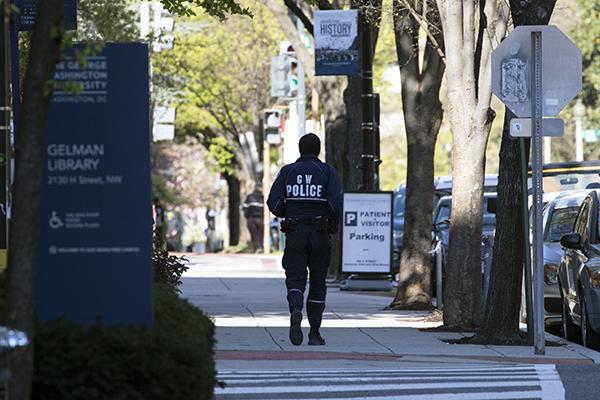The University Police Department has started listing in the crime log when officers refer students to the Title IX office or Division of Student Affairs.
Since January, UPD officers referred at least four students to the Title IX office after the students reported a crime. University spokeswoman Maralee Csellar said the University recently made changes to the status section of the crime log to provide clear information on cases’ progress.
“The status helps to demonstrate to the public that domestic violence and/or sexual assault complaints reported to GWPD are also being shared with the Title IX Office for further review,” Csellar said, adding the department did not make changes to how it investigates crime.
Nationwide, sexual assault is one of the most underreported crimes and a survivor can decide whether or not to proceed with a police report. But UPD officers are required to log any reports of sexual assault, stalking or harassment in the University’s crime log – part of a national requirement for colleges.
UPD officers are also required to refer students to the Title IX office under the Violence Against Women Act, which was reauthorized in 2013.
GW’s Title IX office includes administrators who ensure GW is in line with the federal anti-discrimination law and also provide resources to sexual assault survivors. Officials named a new Title IX coordinator to the office in October 2014.
New York University is the only one of GW’s 14 peer schools that lists Title IX referrals in its crime log.
Adaku Onyeka-Crawford, a counsel at the National Women’s Law Center, said sexual assault survivor groups on college campuses have advocated for greater transparency around Title IX to help hold schools more accountable. She said GW’s decision to start listing Title IX referrals in the crime log could be a response to the call for transparency: By showing when students are referred to the office, officials can show that students are being offered the proper resources.
“Several groups have been pushing for schools to make information public and more transparent,” she said.
Csellar said the University also changed the status for student disciplinary referrals to show that students were referred to the Division of Student Affairs – instead of just showing a student was referred to the Office of Student Rights and Responsibilities. Members of the student affairs office determine whether or not the student will be referred to SRR, she said.
“GWPD routinely reviews and make enhancements to public documents such as the annual security report and the department’s crime log to provide clear and concise information to the public,” she said.







